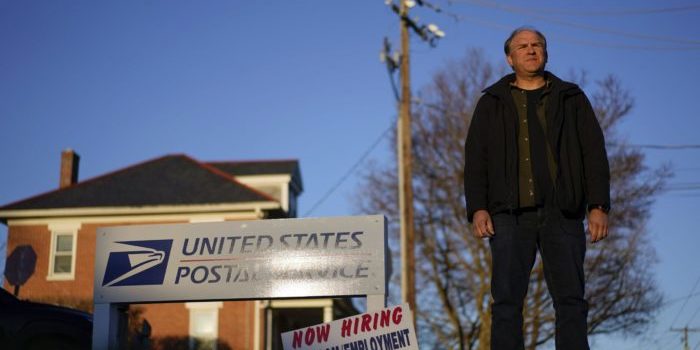(Headline USA) The Supreme Court is being asked to decide under what circumstances businesses must accommodate the needs of religious employees.
A case before the justices Tuesday involves a Christian mail carrier in rural Pennsylvania. He was told that as part of his job he’d need to start delivering Amazon.com packages on Sundays. He declined, saying his Sundays are for church and family.
U.S. Postal Service officials initially tried to get substitutes for the man’s shifts, but they couldn’t always. When he didn’t show, that meant more work for others. Ultimately, the man quit and sued for religious discrimination.
The case is the latest religious confrontation the high court has been asked to referee. That includes a ruling last year in which the court said a public high school football coach should be allowed to pray on the field after games.
Another case the court is weighing this term involves a Christian graphic artist who wants to create wedding websites but doesn’t want to serve gay couples.
A federal law, Title VII of the Civil Rights Act of 1964, requires employers to accommodate employees’ religious practices unless doing so would be an “undue hardship” for the business. But a Supreme Court case from 1977, Trans World Airlines v. Hardison, says employers can deny religious accommodations to employees when they impose “more than a de minimis cost” on the business.
Three current justices—Clarence Thomas, Samuel Alito and Neil Gorsuch—have said the court should reconsider the Hardison case.
The case currently before the court involves Gerald Groff, a former employee of the U.S. Postal Service in Pennsylvania’s Amish Country. For years, Groff was a fill-in mail carrier who worked on days when other mail carriers were off.
But when an Amazon.com contract with the Postal Service required carriers to start delivering packages on Sundays, Groff balked. Initially, to avoid the shifts, Groff transferred to a more rural post office not yet doing Sunday deliveries, but eventually that post office was required to do them too.
Whenever Groff was scheduled on a Sunday, another carrier had to work or his spot went unfilled. Officials said Groff’s absences created a tense environment and contributed to morale problems. It also meant other carriers had to deliver more Sunday mail than they otherwise would.
Groff resigned in 2019 rather than wait to be fired, he said, and then filed a religious discrimination lawsuit. Groff wants the Supreme Court to overrule the Hardison case and to say that employers must show “significant difficulty or expense” if they want to reject a religious accommodation.
Biden administration lawyers representing the Postal Service, however, say Hardison shouldn’t be overruled but instead clarified to make clear it gives substantial protection for religious observance.
The administration also says that—as in Groff’s case—when an employee requests a religious accommodation that negatively impacts other workers, that can be an undue hardship on the business.
The case is Groff v. DeJoy, 22-174.
Adapted from reporting by the Associated Press

